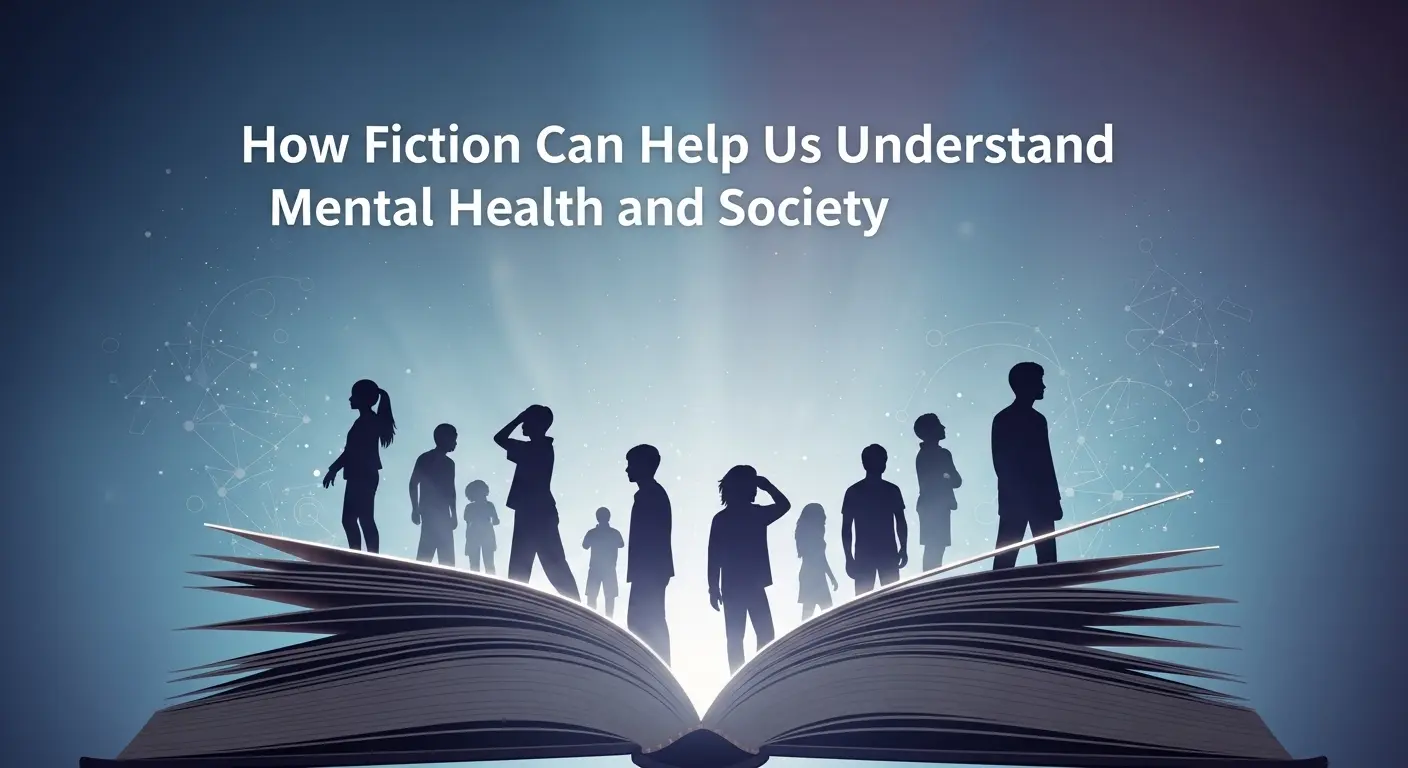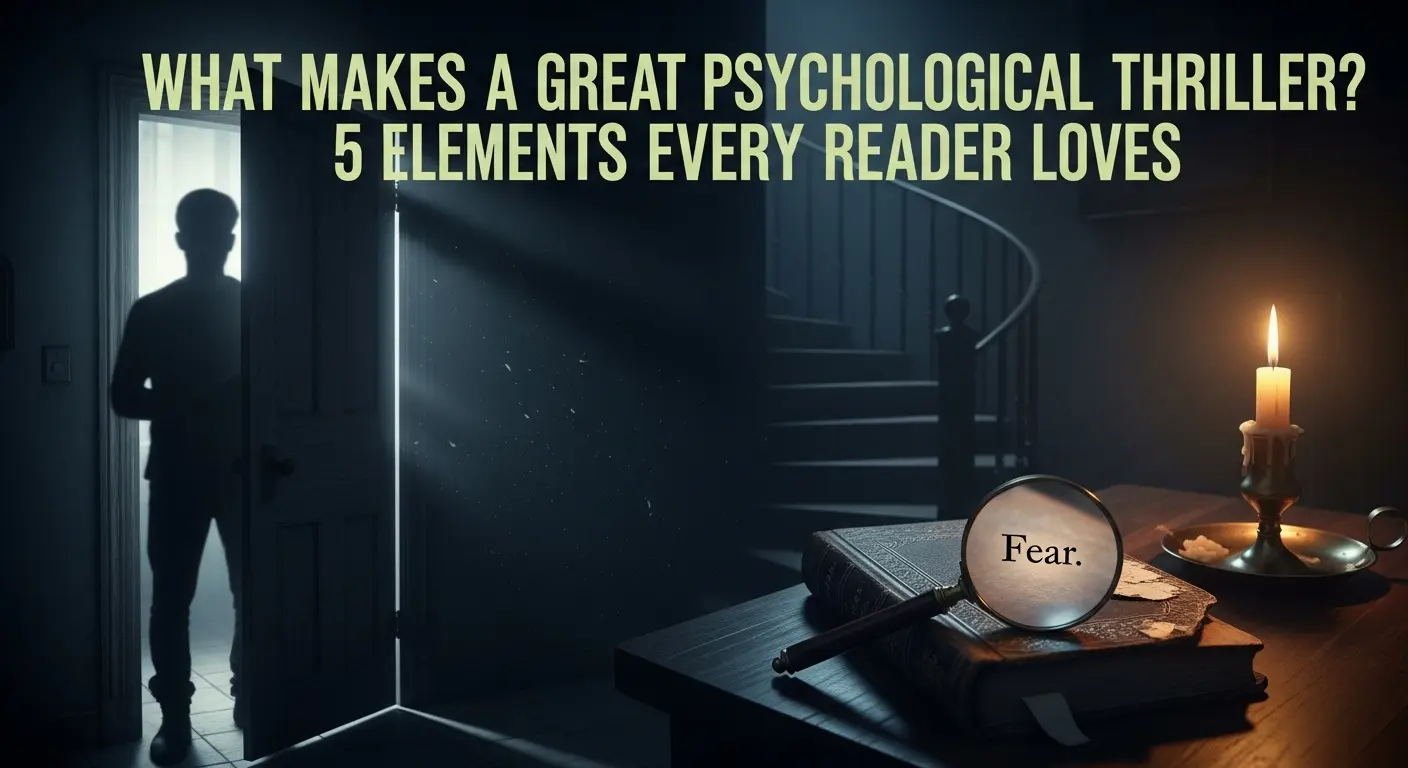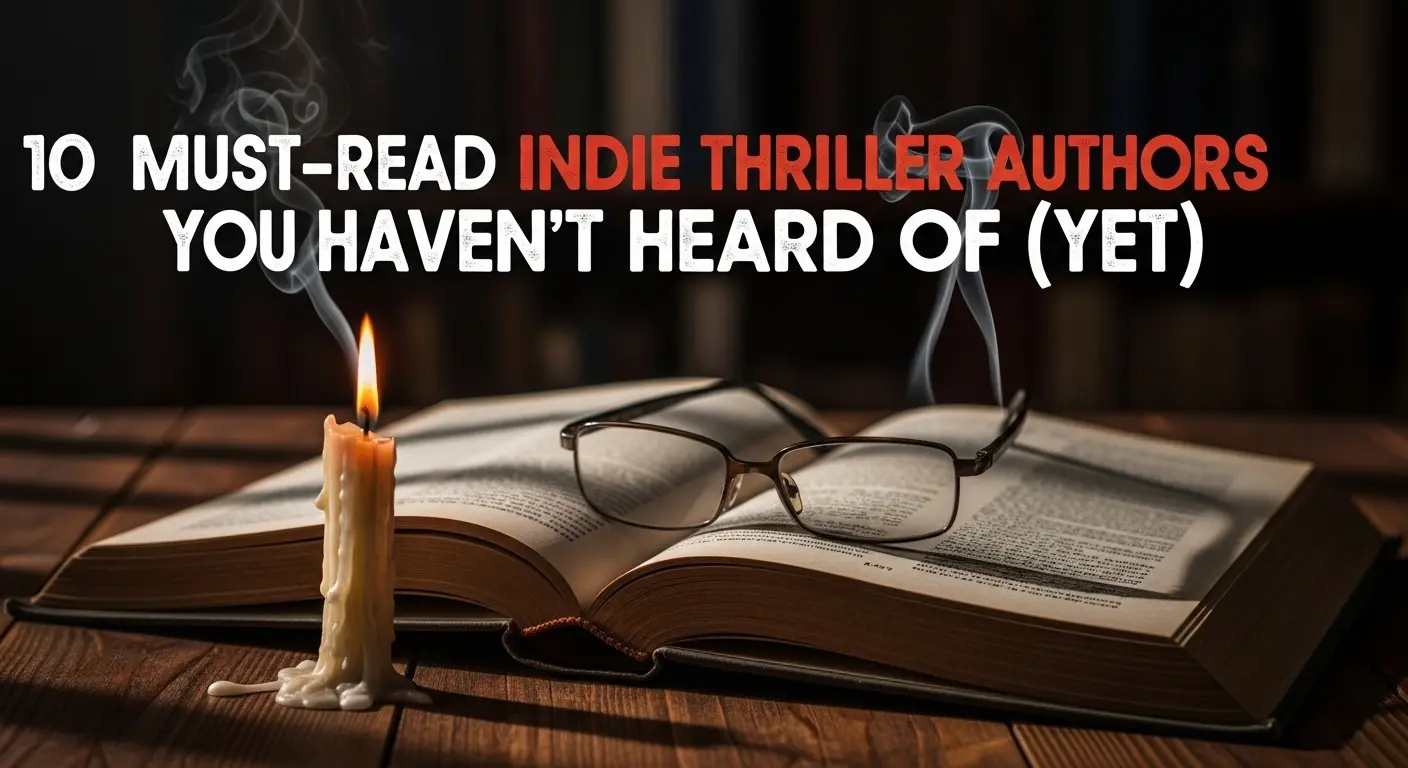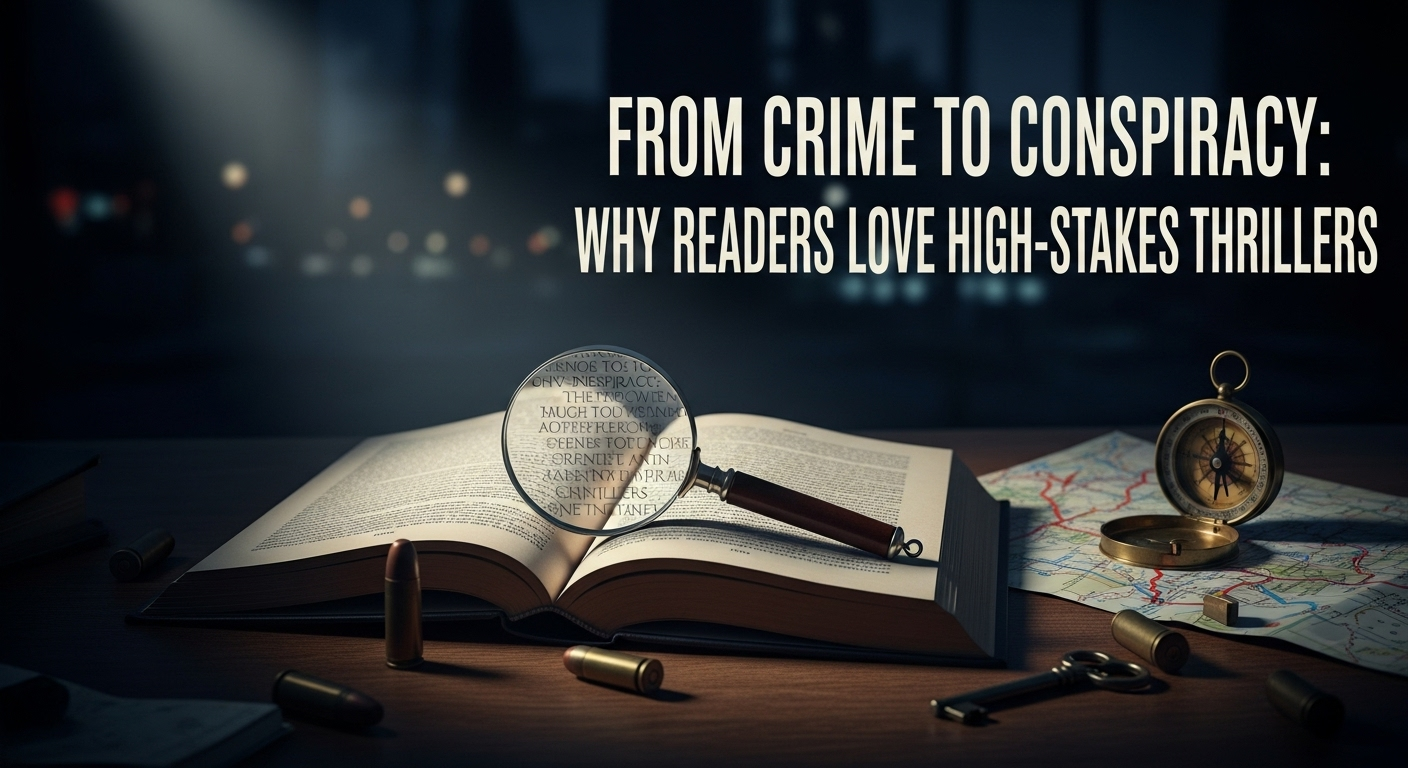Mental health is one of the most important conversations of our time, yet it often gets pushed to the sidelines. Stigma, silence, and societal misconceptions make it harder for people to talk openly about their struggles. Families hush conversations, the workplace overlooks it, and communities create personas that feed off appearances.
But while reality tends to suppress, fiction tends to reveal. Stories become windows into the human mind, allowing us to escape. The books almost open a portal to the world of characters and storylines that help explore. The powerful connection between fiction and mental health transforms numbers into narratives and silence into dialogue.
Table of Contents
ToggleFiction speaks when you cannot
“Humanity is so weird. If we’re not laughing, we’re crying or running for our lives because monsters are trying to eat us. And they don’t even have to be real monsters. They could be the ones we make up in our minds.” – T.J. Klune
Isn’t this exactly why fiction is so vital? The above quote is from the novel ‘The House in the Cerulean Sea’ by T.J. Klune. The monsters we create in our minds out of fear, shame, or anxiety are often harder to deal with. Fiction gives these monsters a face, a story, and sometimes, even resolution. It helps us relate, laugh, cry, and confront feelings without judgment.
That is why the impact of books on mental health cannot be overstated. Reading is not just entertainment. It is therapy, empathy, and understanding rolled into one. In some South Asian societies, mental health is considered a taboo, and novels have been said to create safe spaces for readers to confront their fears.
Fiction and Mental Health: A Mirror to the Invisible
The relationship between fiction and mental health isn’t new. Writers have always used storytelling to reveal the struggles of the mind, even back in ancient times. Clinical reports may tell you about the reality, but sometimes, you need the humanized experiences to understand what is going on. Stigmas in the community don’t voice up, so the fiction creates a mirror. The character becomes a friend, and anxiety, depression, or identity conflict can be dealt with easily.
– Empathy Beyond Boundaries – stories let readers walk in the shoes of someone living with what they are going through. The reader doesn’t have to explain anything. It relates.
– Breaking Cultural Silence – where therapies are stigmatized, fiction makes mental health discussion more approachable.
– Shared Humanity – readers realize that someone understands them, and it is not a flaw but part of being a human.
Understanding Mental Health Dilemmas Through Fiction
Fiction creates safe laboratories for the mind. A character’s heartbreak, paranoia, or triumph helps readers reflect on their own dilemmas in a less intimidating way. This helps the reader seek help or even talk about it without feeling overwhelmed.
The narratives of a protagonist questioning identity, or a thriller character dealing with fear and betrayal, help explore mental health indirectly. Fiction lets us see not just the illness but also the complex emotions behind it. It even explains how strong and resilient the human spirit is.
How Books Impact Mental Health
Books serve as tools for growth and reflection, and this is how books impact mental health positively.
– It reduces loneliness as characters become companions in solitude.
– It strengthens empathy as stories teach compassion and emotional intelligence.
– It encourages reflection on the character struggle and inspires the readers to process on their own.
– It offers hope and lets us recover through fiction, reminding us that healing is possible.
In cultures where mental health services remain scarce or are rather stigmatized, literature fills the gap – quietly, yet powerfully.
Novels about Mental Health that leave a Mark
Many novels speak directly to mental health struggles and turn invisible emotions into relatable journeys.
Here is a list of novels about mental health that directly dive into the mind and discuss what it is about and how the characters and atmosphere deal with the story lines. These novel contain jargons that talk directly about mental health and may contain clinical language.
1. The Bell Jar by Sylvia Plath
A semi-autobiographical classic that powerfully captures depression, identity struggles, and the suffocating weight of societal expectations.
2. The Perks of Being a Wallflower by Stephen Chbosky
A coming-of-age story that explores trauma, friendship, and the silent battles of adolescence with raw honesty.
3. Elanor Oliphant is Completely Fine by Gail Honeyman
A heartwarming yet heartbreaking tale of loneliness, recovery, and the redemptive power of human connection.
4. Turtles All the Way Down by John Green
A sensitive portrayal of OCD and anxiety, offering readers an intimate glimpse into the loops of intrusive thought.
5. My year of rest and relaxation by Ottessa Moshfegh
Darkly humorous, it follows a woman’s attempt to escape life’s pain through sleep, revealing themes of grief and emptiness.
6. Everything Here is Beautiful by Mira T. Lee
A moving exploration of sisterhood and mental illness, showing how families navigate love, loyalty, and responsibility.
Some books do not address mental health directly but touch upon it, as it shows a much deeper connection with society and the inner self.
7. The Midnight Library by Matt Haif
A philosophical journey through regret, hope, and second chances, reminding readers that life’s meaning often lies in small choices.
8. All the Bright Places by Jennifer Niven
A YA novel about grief, love, and bipolar disorder, highlighting how connection can both heal and hurt.
9. The Calculating Stars by Mary Robinette Kowal
While centered on space exploration, it subtly touches on trauma, anxiety, and resilience in high-pressure environments.
One of the books here worth mentioning is not about mental health in its clinical language. But this thriller holds insight into fear, secrecy, and society’s impact on identity, making it deeply relevant to health conversations.
10. The Nostradamus Society by Scott L. Miller
The book conveys secrecy and silence through characters who guard dangerous secrets, echoing how evil people often hide their emotional struggles. It talks about fear and anxiety and mirrors the relentless weight of paranoia and internal fear.
It reflects on society and identity within the societal norms of belonging and exclusion. It explores experiences and the workings of the human psyche. These works of fiction talk about mental health as layered, fragile, and human – not a stigmatized dilemma.
Fiction and Mental health – more than just therapy
Not every difficult emotion is an illness, and sometimes, it is just life being beautifully messy. This is where fiction and mental health connect in meaningful ways. A novel might not replace therapy, but it can be impactful as it offers companionship, relief, and perspective when the world feels heavy.
As the author R.L. Steveson once said:
“Fiction is to the grown man what play is to the child; it is there that he changes the atmosphere and tenor of his life.”
In the end, novels about mental illness remind us that stories are not only about illness but about being human. Fiction and mental health go hand in hand and allow us to breathe, feel, and understand together.






